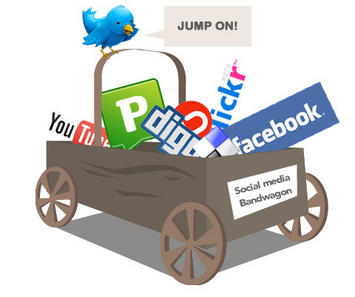
Is success in social networking measured by the number of “Friends” you have on Facebook, or “Followers” you have on Twitter, or “Connections” you make on LinkedIn?
The jury is still out on how social media and social networking will ultimately play out, but new research shows real benefits are being realized from it.
A Harris Poll conducted December 6-10, 2010 found, “Social media has opened the door, or more accurately, many doors, to increasingly numerous ways for people to interact with others, customize their online experiences and receive positive, enriching benefits from their activity therein. In fact, two in five Americans say that they have received a good suggestion for something to try as a result of their use of social media (40%).”
A generation gap remains, but the mere fact that “Matures” are involved in social media constitutes news. The Harris study reports, “A majority of Echo Boomers (those 18-33) say they have received a positive suggestion for something to try from their activity on social media (59%), compared to 44% of Gen Xers (those 34-45), one third of Baby Boomers (those 46-64) (34%), and just one in five Matures (those 65 and older) (19%).”
Pew Research Center’s Internet & American Life Project found that social media’s benefits to groups are now widely recognized by both Internet users and non-users. The study, The Social Side of the Internet, was released on January 18, 2011 and can be found at PewInternet.org. The general findings state, “The internet is now deeply embedded in group and organizational life in America.
Pew studied groups and found in part:
- 68% of all Americans (internet users and non-users alike) said the internet has had a major impact on the ability of groups to communicate with members. Some 75% of internet users said that.
- 62% of all Americans said the internet has had a major impact on the ability of groups to draw attention to an issue. Some 68% of internet users said that.
- 60% of all Americans said the internet has had a major impact on the ability of groups to connect with other groups. Some 67% of internet users said that.
- 59% of all Americans said the internet has had a major impact on the ability of groups to impact society at large. Some 64% of internet users said that.
- 59% of all Americans said the internet has had a major impact on the ability of groups to organize activities. Some 65% of internet users said that.
- 52% of all Americans said the internet has had a major impact on the ability of groups to raise money. Some 55% of internet users said that.
- 51% of all Americans said the internet has had a major impact on the ability of groups to recruit new members. Some 55% of internet users said that.
Does all this suggest that a shift in communications is now upon us? I believe the answer is an unqualified yes. Many experts predict that by 2014 the whole concept of the “new media” and the “social net” will have lost their novelty status as they become fixtures of American business, communications and life.
Many forward thinking companies are moving aggressively to position themselves for this shift. They are beginning to purpose their content for real-time, anytime, two-way dialogue. They are building communities around their own content. American Express is doing a great job at OpenForum using content to build community and establish thought leadership within the small business community.
Why? The “social net” represents a paradigm shift for an organization. It is not as much about the technology as it is about integrating a new way of assembling and distributing information in more open and accessible way. This shift needs to be incorporated into an organization’s DNA. This takes time and a total commitment from the organization.
When the communications shift happens, those organizations that have staged early will realize tremendous benefits. Those organizations that have not will face a very difficult and time-consuming process of not only integrating new technologies into their organizations, but also assimilating the cultural changes that are needed to make this process successful.
The social internet is not a mercurial event, but rather a game changer that will impact every aspect of our lives – something already evident but likely to become more obvious.
Dennis M. Powell is the founder of Massey Powell which provided content logistics services that help organizations ready their content and leverage it into the social media environment. He invites all New Geography readers to visit http://socialmedianewslink.com to learn more about social media.
Illustration by Matt Hamm












